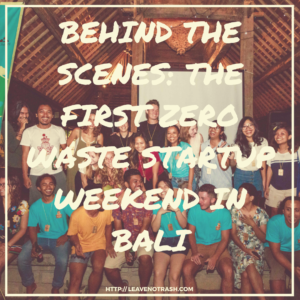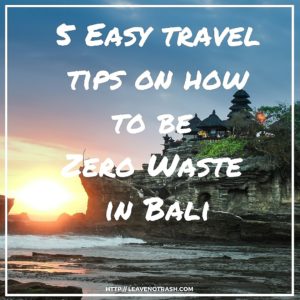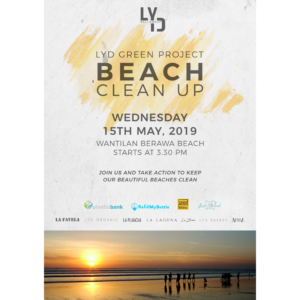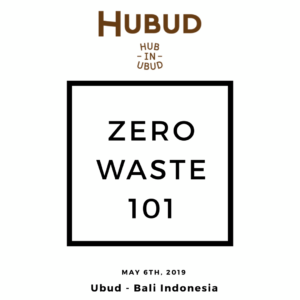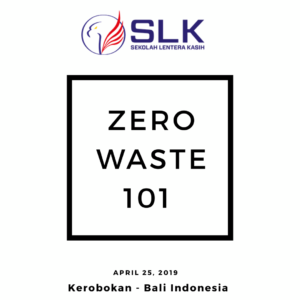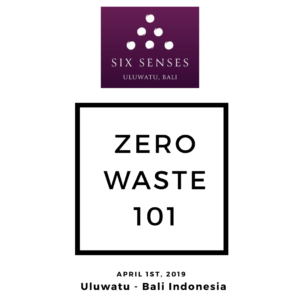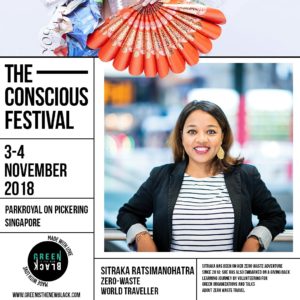5 Easy travel tips on how to be Zero Waste in Bali
Reading Time: 5 minutes
Who have never heard of Bali? I’m guessing (almost) no one. Bali is famous for its abundant culture, unique sunsets, hidden waterfalls, endless tropical lush green and pristine beaches when they’re not “trashed”.
This video worth a thousand words:
Bali has declared a “Garbage emergency” crisis a couple of months ago: the Island of Gods is facing a huge waste problem due to the waste washing ashore its coastlines, coming from the other Indonesian islands such as Java, or from Bali itself. Some banjar (village) in Bali do have a waste management program but it’s not the case for most of the banjar; moreover, there aren’t enough recycling infrastructures in Bali, and the majority of the garbage is either burned, which could cause health issues besides the well-known global warming; or disposed in the nature along the roadsides or in the rivers.
It’s sad right? Don’t want to contribute to this waste crisis?
Leave less trash behind you on your next trip to Bali with these 5 easy Zero Waste tips!
1. Rocking your Zero Waste travel essentials
THINK REUSABLE! The Zero Waste traveler’s 4 basic items are definitely: a reusable straw, a reusable water bottle, a reusable bag and reusable cutlery.
Whether it will be to sip a coconut on the beach, hydrate yourself while exploring the beauty of Bali, shop at the numerous local shops and markets, or to indulge yourself with the delicious Balinese cuisine on the go, the 4 above Zero Waste essentials will help you leave no trash behind you 🙂
Otherwise, you will end up using the infamous single-use plastics: plastic straw, plastic water bottle, plastic bag and plastic cutlery. Single-use plastics are indeed sadly widely used at every shop, bar and restaurant in Bali. Be ready Zero Waste traveler!
If you didn’t have time to stock up on your Zero Waste basic items, you can find them in Bali! Bali has its own Zero Waste shop.
When wandering around, we are generating solid waste and also “invisible” waste.
I’m going to talk personal products here: why? Because believe it or not, they have an impact not only on the environment but also on us.
Impact on the environment: solid personal care products are usually package free so it’s the right way to go if you don’t want to generate any trash. And they’re lighter than the liquid personal care products in plastic bottles: one less packing turmoil!
Impact on you and others: the usual personal care products (shampoo, body wash, toothpaste, deodorant etc…) that you find at the supermarket contain endocrine disruptors and microbeads. Endocrine perturbation may cause birth defects, cerebral tumors, hormonal imbalances to name a few; on the other side, microbeads are polluting the water in a way that they can’t be eliminated by the sewage water treatment. They will then be released as such in the rivers, and will come back right at us by contaminating the food chain via fishes, seafood and sea salt. If you haven’t watched A Plastic Ocean, I highly recommend doing so.
Solid personal care products are biodegradable and dissolve naturally in the water. More details about solid products in the article: “6 Easy tips on how to leave no trash on your next flight”.
Protect your health while protecting the planet.
2. Staying hydrated in a Zero Waste mode
Some people asked me the following: “I get the reusable concept but what about the drinking water?”.
Me: “You can use RefillMyBottle!”
Them: “What’s that?!?”
Bali is very lucky to have an application called RefillMyBottle: you can locate the water refill stations around you on a map: isn’t that wonderful?
Since I’m in Bali for two months now, I’ve never had to buy a single plastic water bottle.
The main advice from the main travel guides would be to buy a sealed water plastic bottle while in Bali: I can testify that this isn’t necessary and on top of reducing the trash you produce, you’ll save money.
The vast majority of the refill station places will refill your water bottle for free, yes FOR FREE! or for a very small amount of money (IDR 5000 = USD 0.40): they are using gallon water or filtered water. You can check this ahead of time on the application itself or on their website.
3. Snacking and being Zero Waste
It can be tricky to be Zero Waste when it comes to snacks: they usually come with plastic or plastic foil packaging that isn’t recyclable.
And as a gentle reminder, Bali doesn’t have enough recycling infrastructure facilities so the best waste is the one that we don’t produce.
Your first and easiest option is to have your snack at a local warung (restaurant) or coffee-shop: eat-in then no waste generated.
Second option is to buy in bulk at the local fresh market with its fresh and healthy products (fruits, nuts etc…) or at one of the bulk shops in Bali such as the Zero Waste Shop or Bali Buda who has a bulk food corner. Just bring along your reusable bag and/or reusable containers to store your snacks.
4. Getting around as a Zero Waste traveler
This section is part of the “invisible” waste family. I’m referring here to CO2 emissions: you generate a certain amount of CO2 depending on how you go around; walking and cycling are preferred but it’s not always possible.
You have numerous options of transportation when it comes to travelling around Bali.
If you travel with your family or a group of friends, renting a car is probably the best option: you can hire a driver at literally every street corner in Bali. And you’re sharing the carbon emissions together 😉
If you travel solo or in a small group, you can take the public transportation, depending of your destination: Perama shuttle bus is one of them, as well as Kura Kura. And it’s cheaper! Zero Waste lifestyle helps you save money ^^
You can also share a taxi by using Bluebird, Grab or Go Jek.
5. Speaking Zero Waste Indonesian Bahasa
Let’s finish with a Zero Waste Indonesian Bahasa crash course 🙂
- No plastic straw, thank you = Tidak usah pakai straw, terimah kasi
- No plastic bag, thank you = Tidak usah pakai plastik, terimah kasi
- No plastic fork, thank you = Tidak usah pakai garpu plastik, terimah kasi
- No plastic spoon, thank you = Tidak usah pakai sendok plastik, terimah kasi
- No plastic knife, thank you = Tidak usah pakai pisau plastik (pronounced pisaou) , terimah kasi
You’re now all set and ready: have a blast exploring Bali as a Zero Waste traveler!
And before you leave, don’t forget to download the LeaveNotrash checklist!
And I would love to hear about your Zero Waste traveler experience so please share with the LeaveNotrash tribe here or on Facebook.
BON VOYAGE! 🙂
PS: I’m NOT affiliated with any of the above brands: I’m just sharing my findings!



